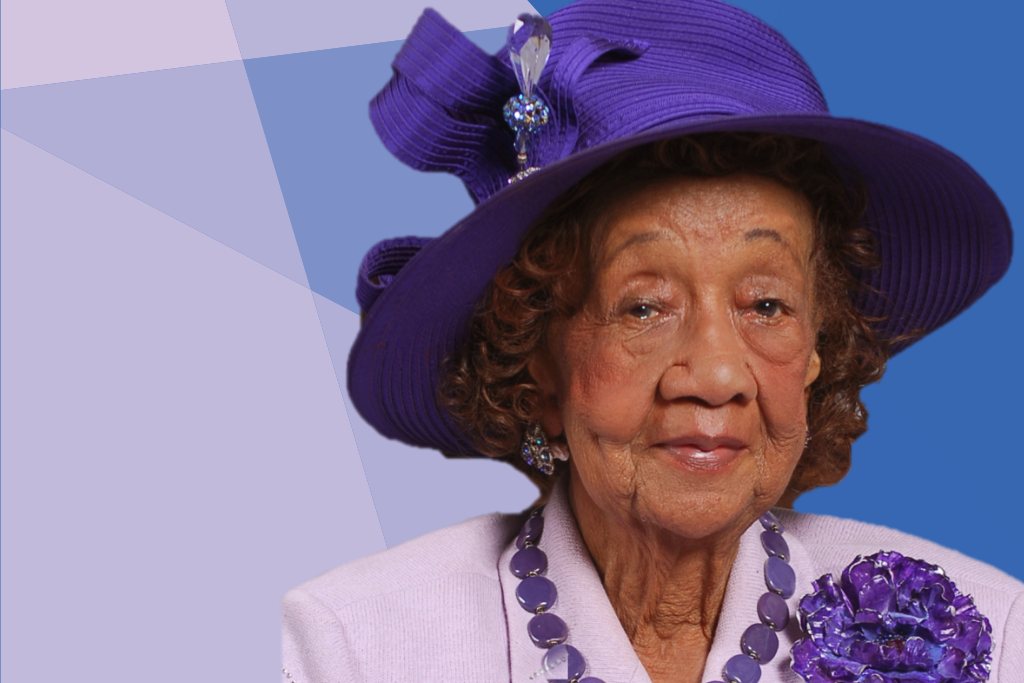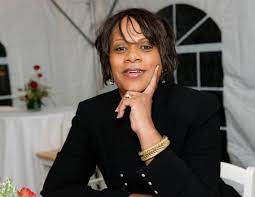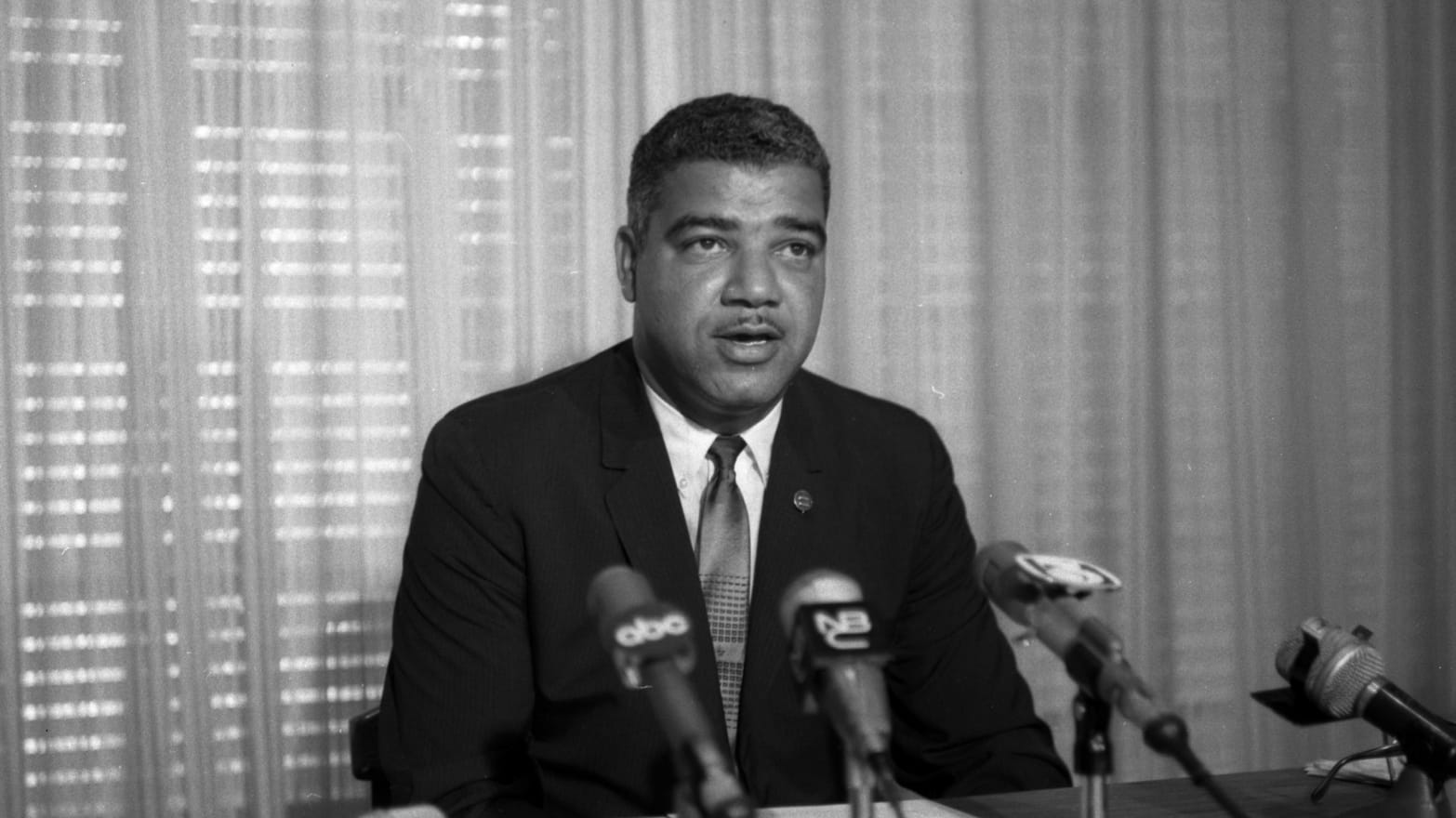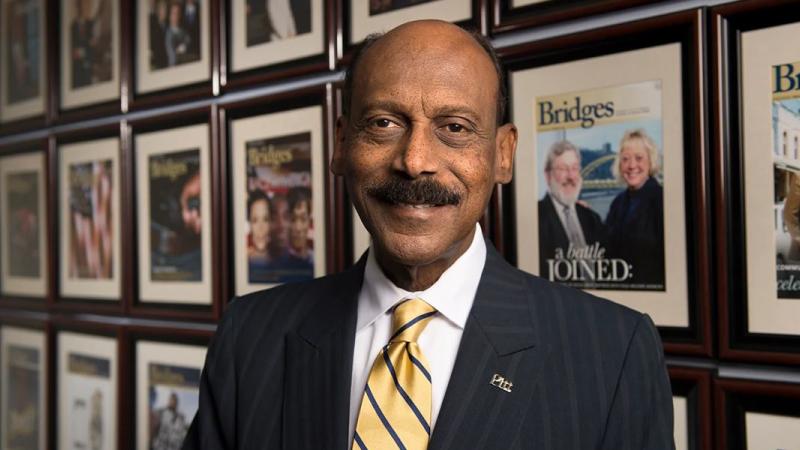February is Black History Month, an annual celebration of achievements by Black Americans recognizing their central role in U.S. history. The event is the brainchild of noted historian Carter G. Woodson and other prominent African Americans and is led by the Association for the Study of African American Life and History.
To honor Black History Month, our DEI team is offering an exploration of influential African Americans in the field of social work.

Social Worker of the Past: Dr. Dorothy Height
Dr. Dorothy Height was born in Richmond, Virginia in 1912, and was educated in the public schools of Rankin, Pennsylvania outside of Pittsburgh. Dr. Height won an oratorical scholarship, which along with a record of scholastic excellence, allowed her to enroll in New York University where she earned her bachelor's and master's degrees in four years.
Dr. Height did further postgraduate work at Columbia University and the New York School of Social Work. Ms. Height was among the coalition of African American leaders who pushed civil rights to the center of the American political stage after World War II, and she was a key figure in the struggles for school desegregation, voting rights, employment opportunities and public accommodations in the 1950s and 1960s.
Dr. Height was often known as the "Godmother of the Civil Rights Movement." President Barack Obama stated that "She never cared about who got the credit. What she cared about was the cause. The cause of justice, the cause of equality, the cause of opportunity, freedom's cause."
Source: www.nasw-pa.org

Today's Social Worker: Mildred Joyner
People who make an impact often take leadership roles and have scholarships named after them – like Mildred "Mit" C. Joyner, Vice President of NASW.
Joyner served as chair of West Chester University's Undergraduate Social Work Department for twenty-nine years. She is an alumnus of the Howard University MSW program, class of 1974. Prof. Joyner is the immediate past President and Board Chair of the Council on Social Work Education. When serving as President of CSWE, she also served as the United States Representative on the board of the International Association of Schools of Social Work (IASSW).
Joyner co-authored Critical Multicultural Social Work (2008), and Caregivers for Persons Living with HIV/AIDS in Kenya: An Ecological Perspective (2012). She is recognized nationally for her leadership, especially in gerontology social work education. In honor of Prof. Joyner's leadership and vision, the Association for Gerontology Education in Social Work created a scholarship – the Mit Joyner Gerontology Leadership Award – in 2005 for undergraduate social work faculty and students to promote leadership in gerontological social work practice through scholarship, best practices, and/or community connections. Most recently, Prof. Joyner made a presentation at the University of Dhaka in Bangladesh on "Capacity Building of BSW and MSW Accredited Programs."
Prof. Joyner appoints leaders in social work education to all the various commissions, councils, and task forces of CSWE. She is a member of the National Association of Social Workers; the Association of Baccalaureate Social Work Program Director's (BPD) and former president; and a board member of the Action Network for Social Work Education and Research Coalition. Prof. Joyner also is a past advisory board member of the Gero-Ed Center (gerontological education); former treasurer of the Institute for the Advancement of Social Work Research; and previous board member of the Institute for Geriatric Social Work. In 2011, she received the BPD Lifetime Achievement Award in Cincinnati, Ohio.
In the community, Prof. Joyner has been on the board of directors for DNB First (previously known as Downingtown National Bank) since 2005. She is the first woman and the first African American to serve on this prestigious community bank board of directors. In addition, Joyner served a passionate role as the immediate past Board Chair of Living Beyond Breast Cancer, a national education and support organization whose goal is to improve the quality of life and help all women affected by breast cancer to take an active role in their ongoing recovery or management of the disease.
In the field of social work, Prof. Joyner's research interests included organizational change, diversity and gerontology. As a member of the WCU faculty, she chaired the Undergraduate Social Work Program for more than 25 years. She was the Fundraising Chair of the Frederick Douglass Institute of West Chester University.
Mildred C. Joyner is devoted to the field of social work but also her family. She is married to the Hon. J. Curtis Joyner, United States District Court Judge for the Eastern District of Pennsylvania who graduated from Howard Law School. They have three daughters: Dr. Jennifer Joyner-Hall, Clinical Psychologist of DC, and Nicole Joyner, Human Resource Manager of ADT in Atlanta, Georgia, and Attorney Jacqlyn Joyner in Chicago, Illinois.
Joyner acknowledges that her work in the area of social and economic justice is motivated by her father, Harold C. Carter, and the writings of W.E. Dubois and Frederick Douglass, poetry of Langston Hughes, the life and works of Martin Luther King, Jr., Mother Theresa, and Gandhi as well as many other civil right leaders. The Drum Major Instinct by Dr. Martin Luther King, Jr. is one of her favorite passages and serves as the framework for her desire to do more.
Source: www.nasw-pa.org

Social Worker of the Past: Whitney M. Young Jr.
Whitney Moore Young Jr. was born in Kentucky in 1921. Young earned a Bachelor of Science degree from Kentucky State University where he became a member of Alpha Phi Alpha Fraternity. From 1942-1944, while serving in the U.S. Army, he studied engineering at the Massachusetts Institute of Technology. After his discharge, Young went on to earn his MSW from the University of Minnesota. He then began to work with the Urban League in Minnesota. He became executive secretary of the Urban League in Omaha, Nebraska. Young became the executive director of the National Urban League in 1961. Young also served as the Dean of the School of Social Work at Clark Atlanta University, which now bears his name.
Young became President of the National Association of Social Workers in 1969, serving until 1971. In 1970, Young called on social workers to act via the NASW News. "The crisis in health and welfare services in our nation today highlights for NASW what many of us have been stressing for a long time: inherent in the responsibility for leadership in social welfare is responsibility for professional action. They are not disparate aspects of social work but merely two faces of the same coin to be spent on more and better services for the people who need our help. It is out of our belief in this broad definition of responsibility for social welfare that NASW is taking leadership in the efforts to reorder our nation's priorities and future direction and is calling on social workers everywhere to do the same."
Young was a noted civil rights leader and statesman who worked to eradicate discrimination. He received many honorary degrees and awards —including the Medal of Freedom (1969), presented by President Lyndon Johnson—for his outstanding civil rights accomplishments.
Source: www.NASWFoundation.org
Today's Social Worker: Larry E. Davis, PhD
Larry E. Davis received his PhD from the University of Michigan's dual-degree program in social work and psychology in 1977. He also earned master's degrees in social work and psychology from the University of Michigan and a bachelor's degree in psychology from Michigan State University.
Davis is the Dean of Pitt's School of Social Work, where he also is the Donald M. Henderson Professor and Director of the Center on Race and Social Problems. He began his tenure at Pitt in the fall of 2001. He was previously at George Warren Brown School of Social Work at Washington University in St. Louis, Mo., where he was a professor of social work and psychology and held the E. Desmond Lee Chair in Ethnic and Racial Diversity.
Davis's professional interests include interracial group dynamics; the impact of race, gender, and class on interpersonal interactions; African American family formation; and youth. Davis has also received research funding from sources such as the National Science Foundation, the National Institute of Health, and the National Institute of Mental Health.
Source: University of Pittsburgh



